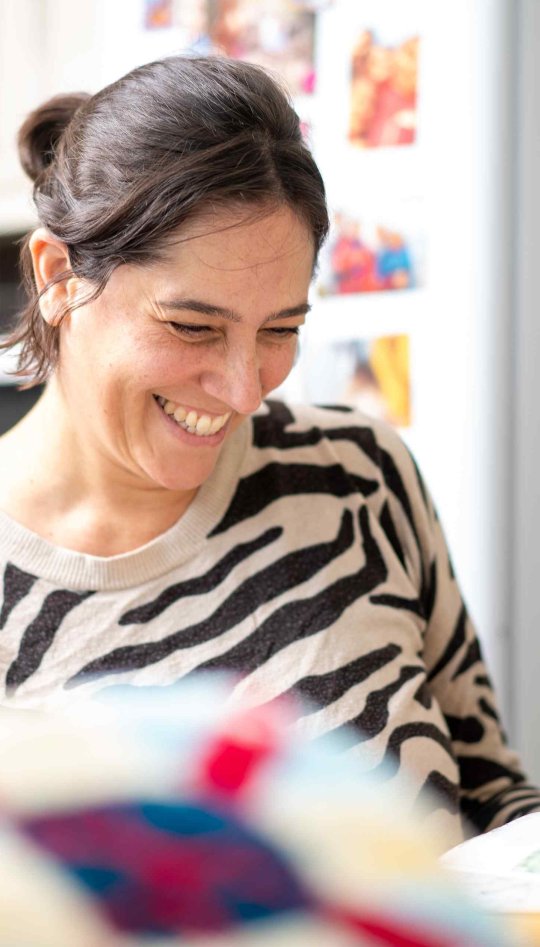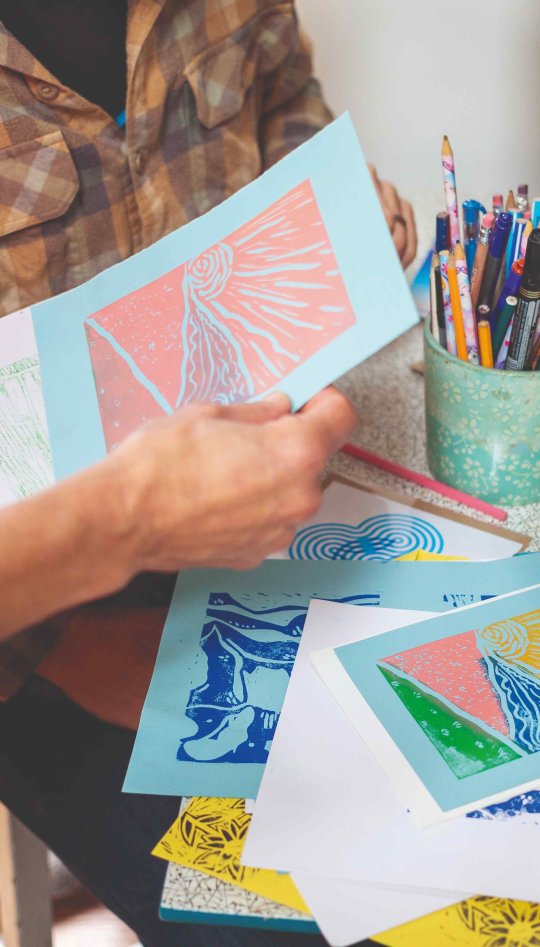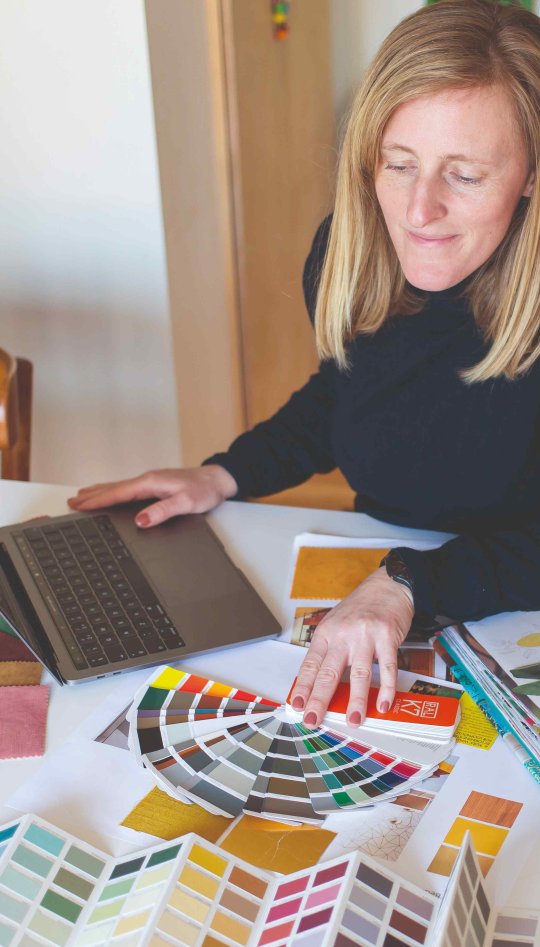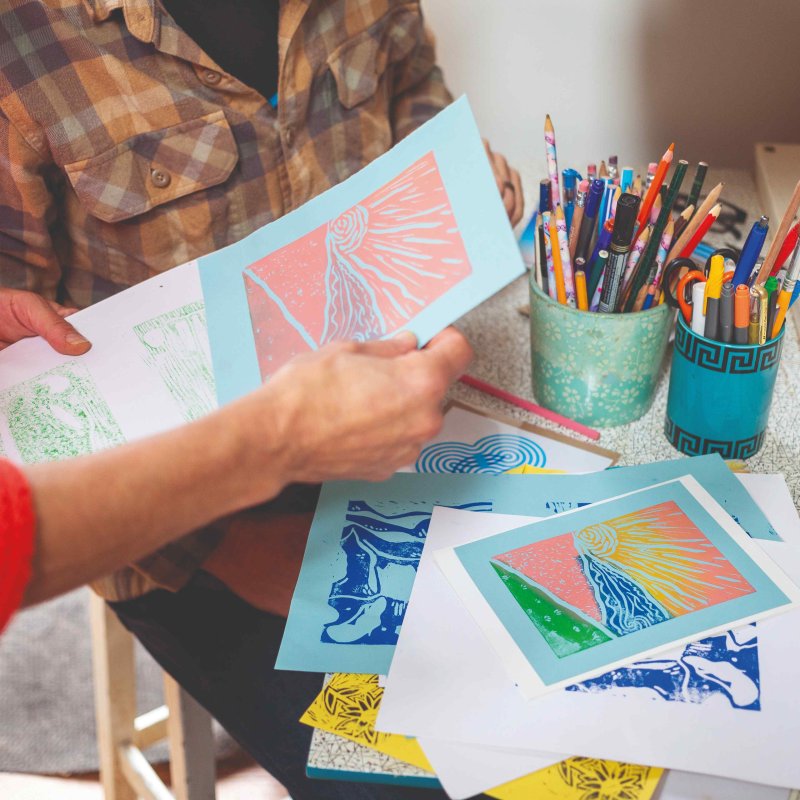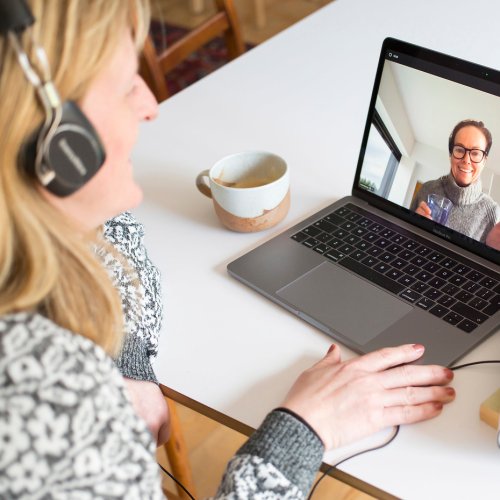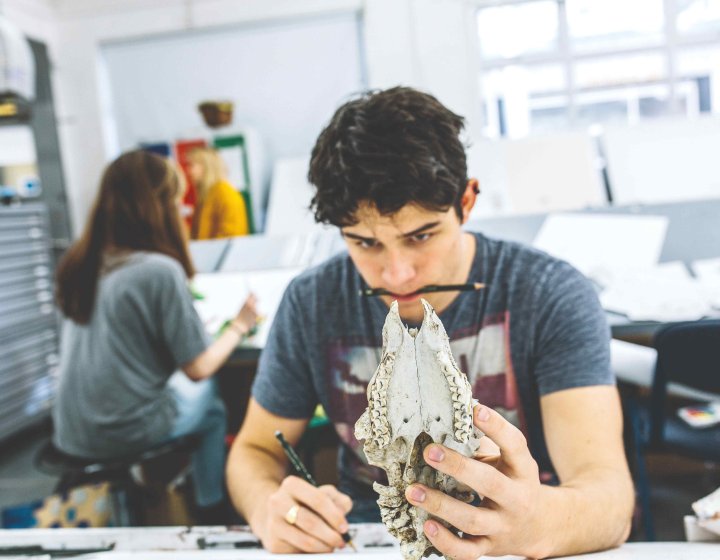Course overview
This course is new for entry year 2026.
This Combined Arts online degree gives you the opportunity to explore a wide range of creative disciplines, following your ambition and passion while developing your own creative voice and growing a wide range of transferrable skills.
This Integrated Master’s model combines undergraduate and postgraduate study in one efficient, effective degree which will give you a strong creative theoretical background, as well as creative space to explore your own independent research and projects.
Studied 100% online and in a way that works for you, the Combined Arts courses bring expertise from across the creative disciplines; design, writing, illustration, visual communication, and fine art. You will choose one of two courses – Combined Arts: Creativity, or Combined Arts: Design Fundamentals – and through these courses, you will focus on in-demand skills aligned with future careers. With a focus on problem-based learning, you’ll grow as an engaged and innovative creative who can apply your knowledge to real-world problems.
The accelerated pace of our online courses offers both academic challenge and the opportunity to enter the workplace with a postgraduate qualification ahead of your peers, with the flexibility to focus on areas of the creative industries that matter to you and your future career ambitions.
Why study this course at Falmouth?
- Simplicity and flexibility: The Combined Arts Integrated Master’s courses offer a flexible and personalised learning experience, allowing you to shape your own academic journey and build your study around your life
- Broad creative arts and design basics curriculum: You'll gain a breadth of creative and critical skills from across a range of arts disciplines, enhancing your employability.
- Problem-based curriculum design: With an emphasis on creativity and problem-solving, you’ll be equipped to approach real-world challenges in both life and work.
- Interdisciplinary approach: This course cultivates the ability to tackle complex problems by integrating diverse academic perspectives.
- A connected community: Join a global community of diverse practitioners and make career-defining connections.
What is an Integrated Master’s?
Our online integrated master’s programme combines undergraduate and postgraduate degree study into a single, accelerated course.
You graduate with a master’s degree in just three years rather than four – saving significantly on tuition fees compared to a traditional full time undergraduate and postgraduate degree course.
Having a master’s degree gives you advanced skills, and sets you apart from other applicants when applying for future roles – plus, people with postgraduate degrees are more likely to secure higher salaries UK Government data, 2023.
Similar courses
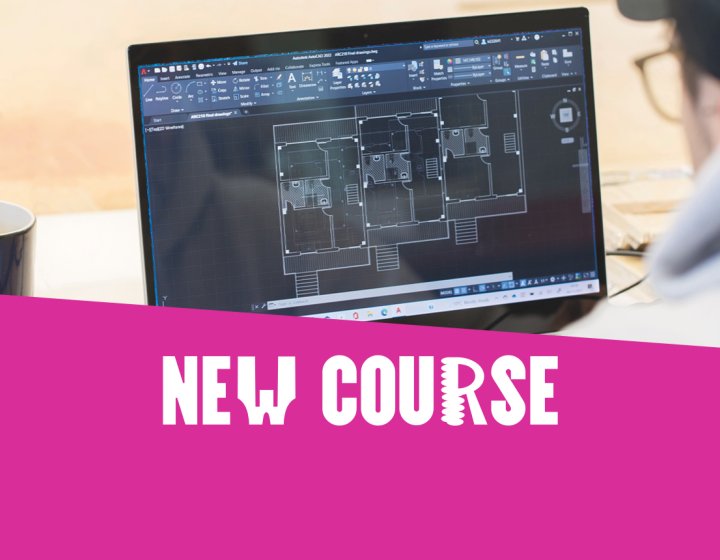
Architectural Design & Technology BA(Hons)
More course information will be provided shortly. In the meantime, if you have any questions you can...
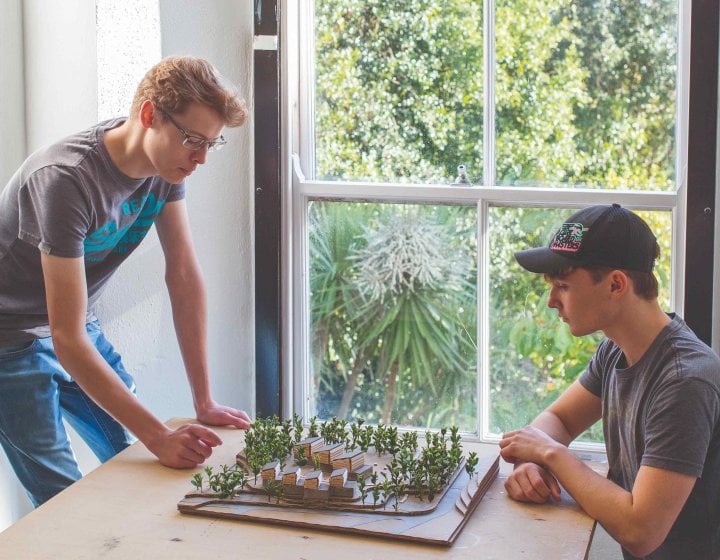
Architecture BA(Hons)
Generate imaginative, impactful designs and start your future career on this highly creative, social...
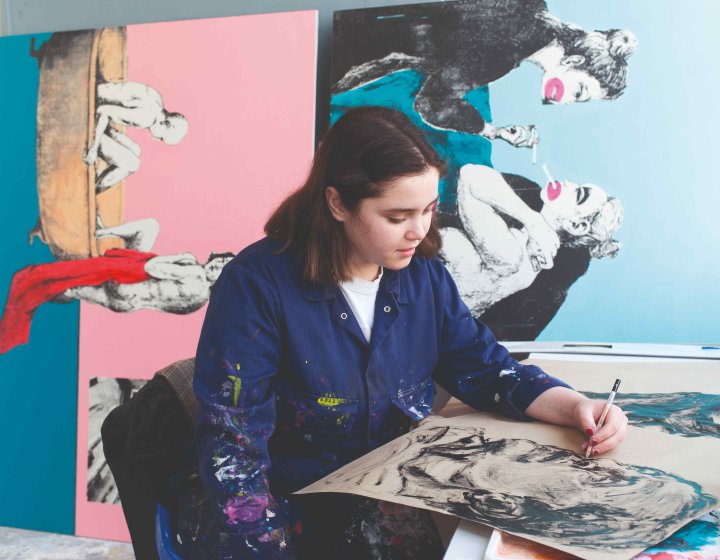
Fine Art BA(Hons)
This highly-respected course aims to support the development of your practice as it evolves over the...
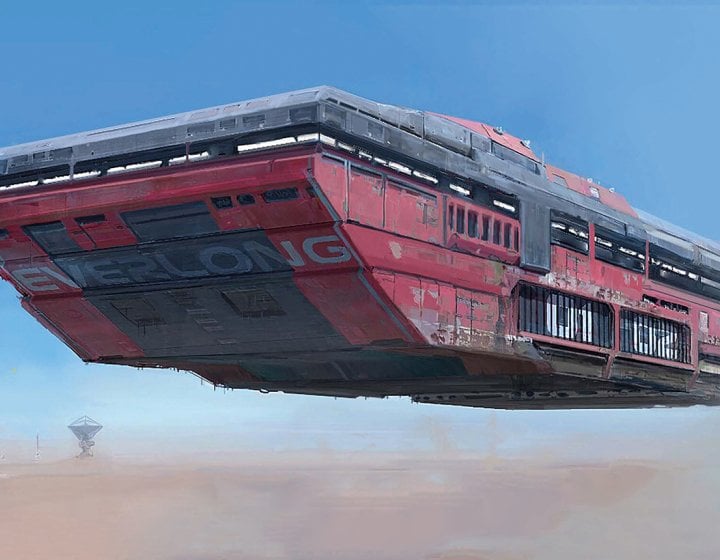
Game Art BA(Hons)
Work in multi-skilled collaborative teams and graduate as a confident, industry-ready game artist. ...
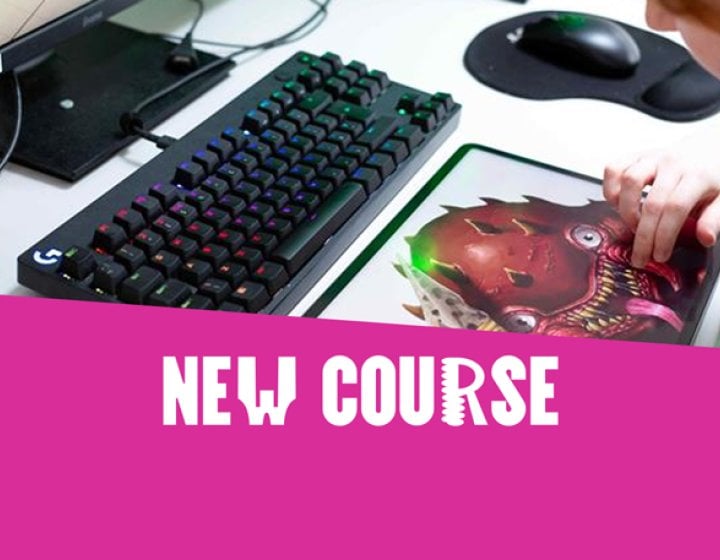
Game Art BA(Hons) (Online)
On this online Game Art degree, you’ll develop the creative and technical skills needed to thrive ...
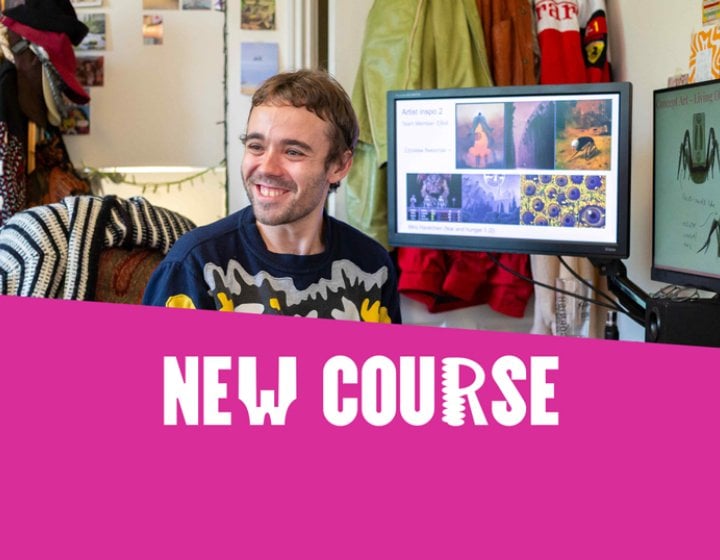
Game Development BA(Hons) (Online)
On this online Game Development degree, you’ll establish your specialism within the field, gaining...
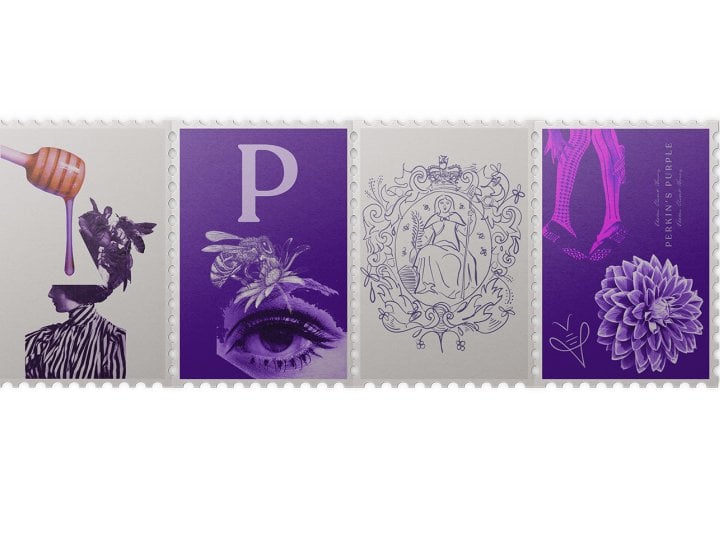
Graphic Design BA(Hons)
Graphic Design is one of the most versatile visual disciplines, embracing words and pictures, form a...
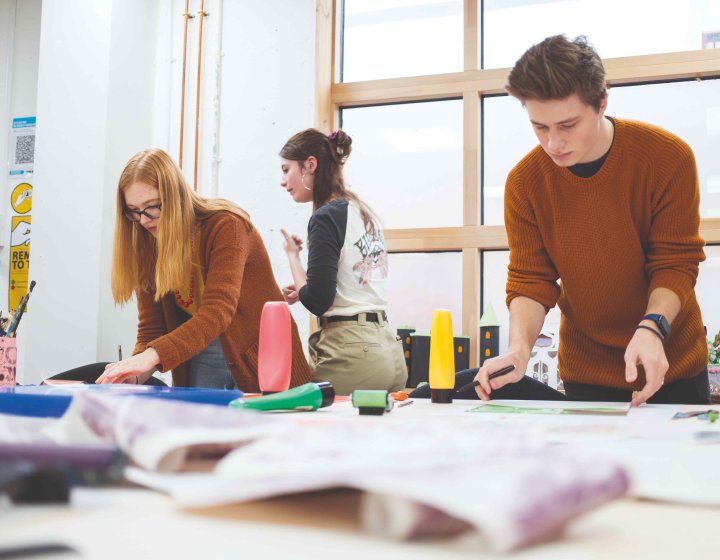
Illustration BA(Hons)
Become adept at problem solving and creating your visual language on this Illustration degree, renow...

Illustration BA(Hons) (Online)
Gain the professional practice and entrepreneurial skills needed to turn your talent into a successf...
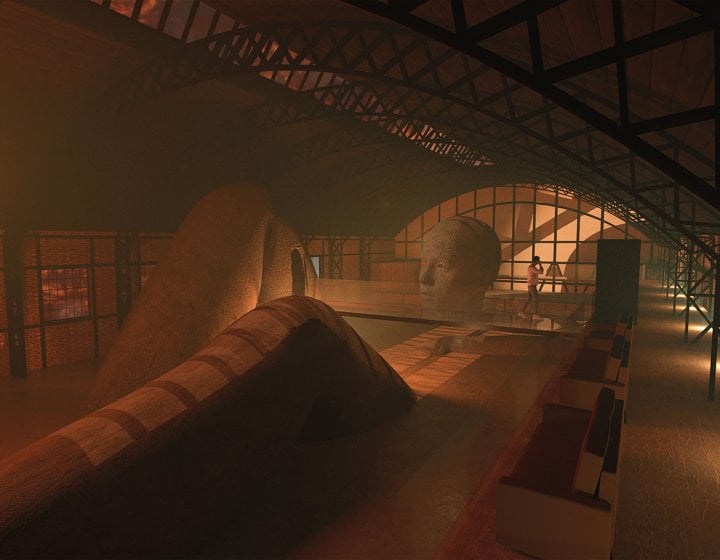
Interior Architecture BA(Hons)
Uncover the impact and potential of the spaces in which we work, rest and play, on this future-focus...
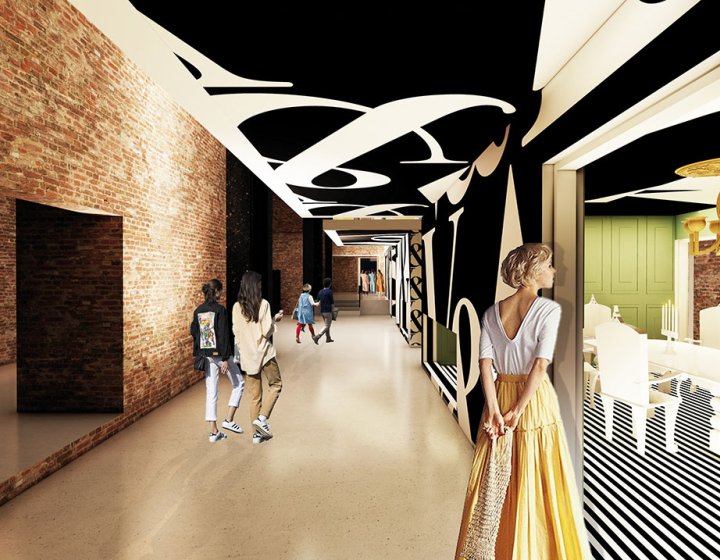
Interior Design BA(Hons)
Delve into the world of built spaces, interior environments and the people who inhabit them. Through...
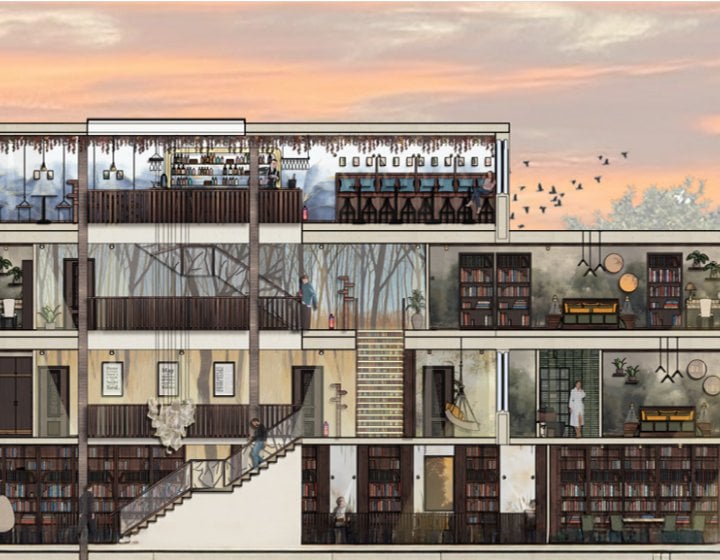
Interior Design BA(Hons) (Online)
Test the bounds of what's possible to achieve in interior spaces and develop the entrepreneurial kno...
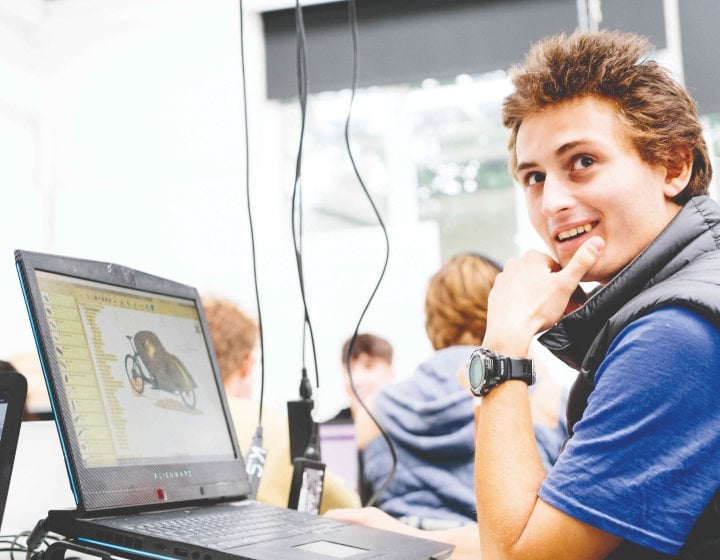
Sustainable Product Design BA(Hons)
Become a conscientious and innovative product designer with the professional practice skills to make...
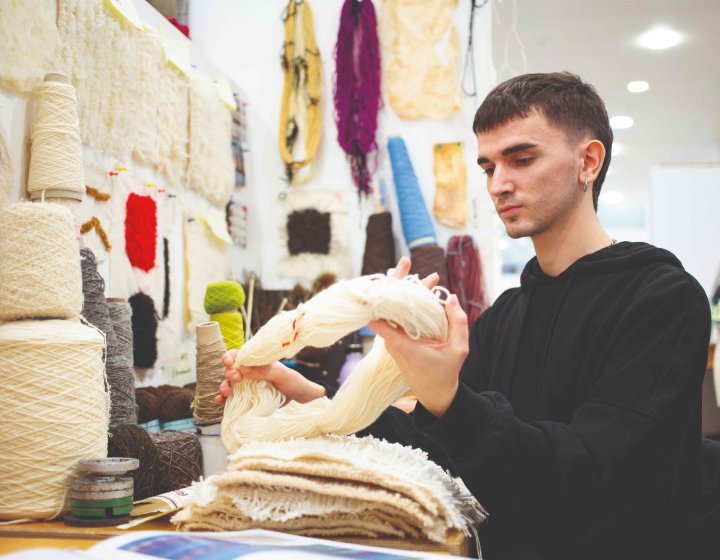
Textile Design BA(Hons)
On our textile design degree, you’ll be part of a vibrant, supportive community of multidisciplina...
